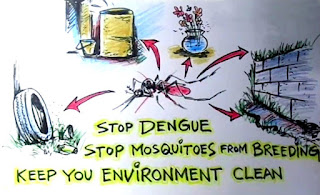Dengue fever is considered a year-round, nationwide threat in Mexico; however, risk is highest June-October. Health authorities identified roughly 59,918 cases of dengue fever in 2022, 36,742 cases in 2021, 120,639 cases in 2020, and 268,458 cases in 2019. Dengue is a viral infection that spreads from mosquitoes to people. It is more common in tropical and subtropical climates. Most people who get dengue won’t have symptoms. But for those that do, the most common symptoms are high fever, headache, body aches, nausea and rash. Most people will get better in 1–2 weeks, however, some people develop severe dengue which includes shock or respiratory distress due to plasma leakage, severe bleeding, organ impairment, and death
Ana Luisa Guluarte, director of Health Services of the State Ministry of Health, reported that they are monitoring the dengue cases that tend to rise in the rainy season and hurricanes, they are currently under close surveillance to locate conditions in the five municipalities of the state. "We have one death in Los Cabos, in addition, 30% of these cases presented dengue with alarm signs and severe forms, so yes, there is the possibility of complications. We have to do a strong job, it is a condition where the community participation of citizens is fundamental in the elimination of hatcheries”.
Read our full report here
There are fumigation processes by the health department across the city in progress, thermonebulization and larval control, that is, the health brigades that go house to house identifying hatcheries, eliminating them and applying insecticides or herbicides to eliminate hatcheries.
The basics YOU can do: Cover and clean water containers on a regular basis. Common household items like pet water containers, planter dishes, and flower vases can serve as breeding grounds since mosquitoes like to lay their eggs in standing water. Keep your house clean and tidy. Avoid leaving junk inside and outside the house which can possibly house mosquitoes and their eggs like old tires and other storage containers with water inside.
Dispose of waste properly. If possible, use closed trash bins and take out your trash on a regular basis. Segregating your trash may help prevent insects from entering your household. Drain and clean your roof gutters to avoid water build up. Do the same with pools, fountains, and bathtubs.


